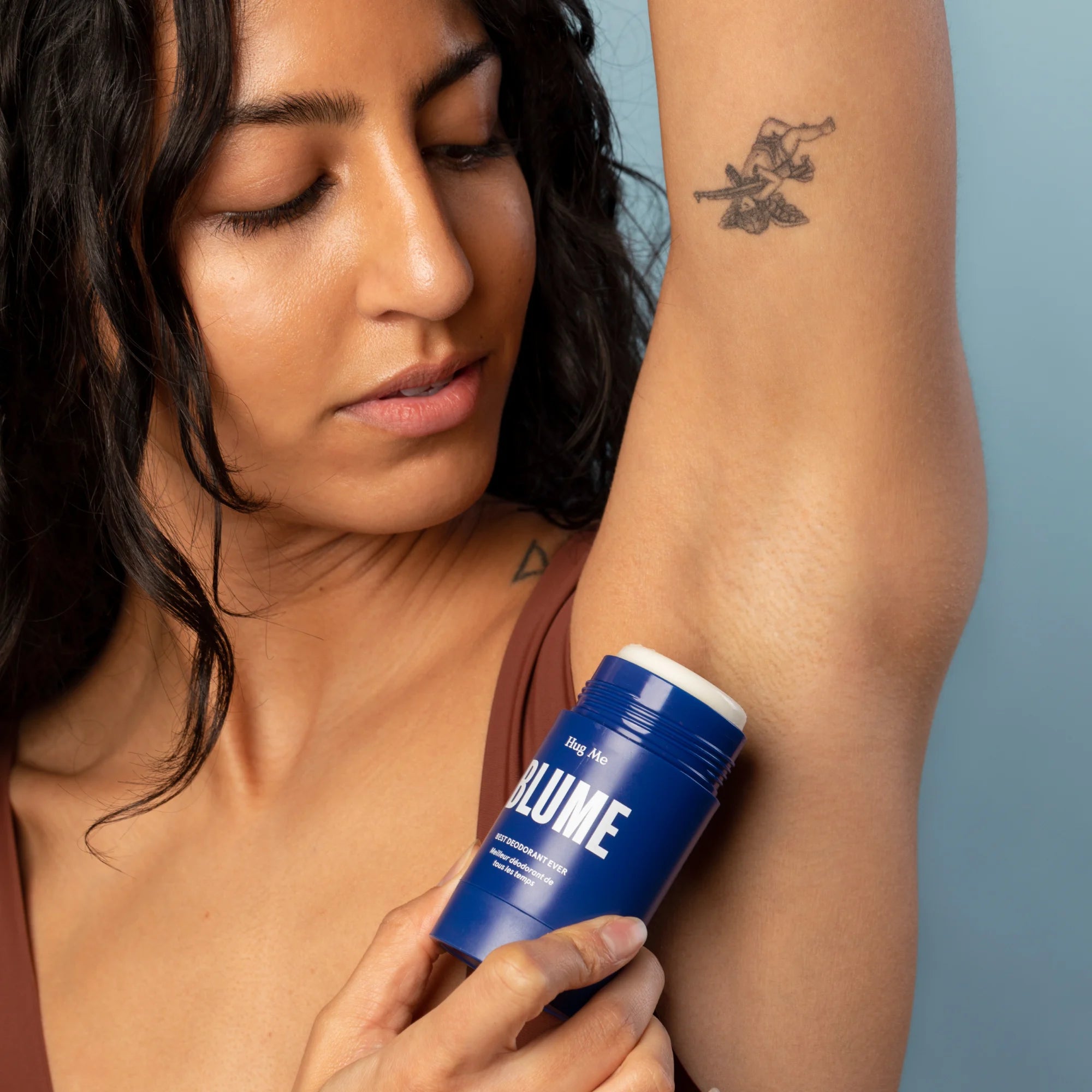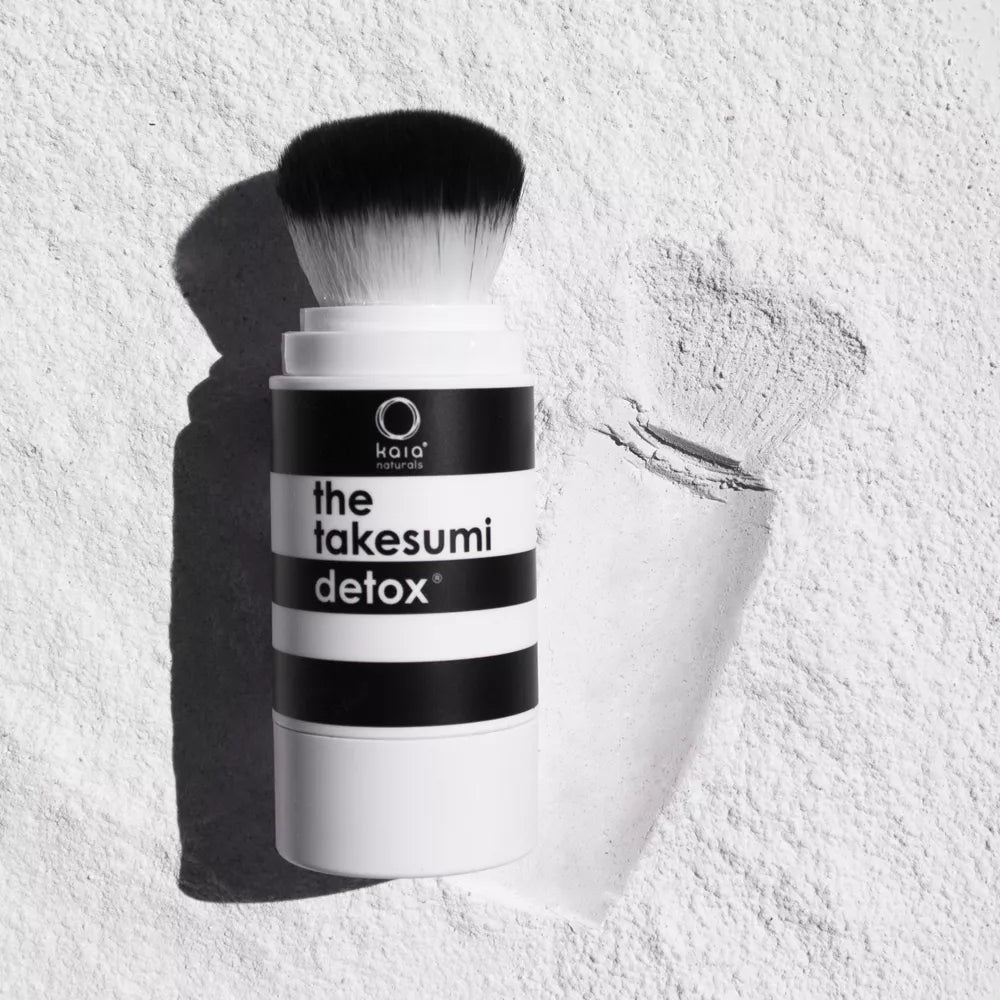The Science Behind Hormonal Sweating and Body Odour
Sweat is a natural bodily function that regulates body temperature and gives you that gorgeous post-workout glow, but have you ever noticed that sometimes you sweat more and have a more pungent body odour than usual? The answer lies in the intricate relationship between hormone fluctuation and sweat production. Hormones like estrogen, testosterone, and cortisol profoundly impact our mood, sex drive, body weight, sleep quality, fertility, skin, and even our scent. Here's how shifts in these hormones change the way you sweat and smell:
Puberty
During puberty, hormonal changes, particularly an increase in androgens, stimulate the apocrine glands in our armpits and groin area. These sweat glands produce thicker, higher protein sweat than the eccrine glands covering the rest of our body, providing a breeding ground for bacteria. It's the interaction between these secretions and bacteria that can lead to a rather unfortunate cocktail of scents.
Menstrual Cycle
Along with cramps, bloating, breakouts, sore breasts, fatigue, and mood swings (yay!), hormonal fluctuations throughout the menstrual cycle affect sweat and odour production. When estrogen levels are high, typically during the first half of the menstrual cycle, your sweat may be less odorous so you're more likely to feel and smell fresh. During the premenstrual phase, progesterone levels rise, causing an increase in body temperature and sweat production. As progesterone levels peak, your sweat becomes slightly saltier and more attractive to bacteria, increasing body odour.
Pregnancy
During pregnancy, your basal metabolic rate increases, as does the blood supply to your armpits. This revs your sweat glands into overdrive, producing an increase in the estradiol hormone, the main culprit for underarm odour. This, combined with elevated hormone levels, can make for a more pungent body odour than usual.
Menopause
Menopause brings significant hormonal changes, including a decline in estrogen levels. The reduction of 'cooling agent' estrogen can trigger hot flashes and excessive sweating. In response, sweat glands release higher amounts of other hormones that affect the brain's thermostat, causing your body temperature to fluctuate. The drop in estrogen brings attention to the testosterone left behind, which attracts more bacteria to sweat, making it smell funkier.
Testosterone
Men are not exempt from the influence of hormones on sweat and odour production. Testosterone, the primary male sex hormone, stimulates the apocrine glands, which produce sweat-containing proteins and lipids. When bacteria on the skin break down these compounds, it can result in a noticeable odour. Testosterone also influences the type of sweat produced - men's sweat contains higher levels of fatty acids and proteins compared to women's sweat, which can contribute to a sharper odour when broken down by bacteria.
Stress
Stress and sweat are closely interconnected; you can't have one without the other. Stress influences sweat and odour production by activating the "fight or flight" response and triggering the release of stress hormones cortisol and adrenaline, which increase heart rate, blood pressure, and body temperature. When stress hormones are released, they stimulate the sweat glands to produce more sweat. This increased sweating can lead to moisture buildup on the skin, creating an environment conducive to bacterial growth. 
Managing Hormonal Sweat and Odour
Now that we understand the connection between hormonal fluctuation and sweat and odour production, how do we tackle the sweat?
Regular Showering
Maintain a good hygiene routine, especially during times of hormonal fluctuation, to keep your skin clean and reduce bacteria buildup. Pay extra attention to areas prone to sweating and use a natural body wash that won't disrupt your skin's pH balance.
Wear Breathable Fabrics
Do your gym clothes stink even after you've washed them? Artificial fabrics like polyester, nylon, acrylic, and spandex add to body odour. Choose clothing made from natural, breathable fabrics like cotton or linen to allow better air circulation and minimize sweat buildup and the growth of odour-causing bacteria.
Use A Natural Deodorant
Unlike aluminum-based antiperspirants, which block sweat glands and trap toxins in your body, natural deodorants neutralize and mask odours, allowing your underarms to breathe. Invest in a high-quality deodorant to combat excessive sweat and control odour. (Brownie points for a formula with antibacterial properties to fight odour-causing bacteria). Anyone who has switched from an aluminum antiperspirant to a natural deodorant will tell you - there's a transition period. To help mitigate stronger odour stemming from a change in hormones, switch to an extra-strength deodorant. If sweat production is really ramping up, consider Kaia Naturals' 3-step system for odour and sweat - a clarifying underarm bar, a natural charcoal deodorant, and a talc-free absorbent sweat powder. Feedback on this system is consistent: comfortable wear that keeps you dry all day long. GK ProTip: Double-down on neutralizing odour with a natural perfume.
Stress Management For Odour Control
Managing stress through relaxation techniques like meditation, yoga, or mindfulness helps keep cortisol levels in check to get ahead of the sweat-inducing fight-or-flight response. 
Our Takeaway
Our bodies are intricate systems, and hormones play a significant role in regulating various bodily functions, including how much we sweat and the odours we produce. Understanding these connections can help us to better manage and address body odour concerns. It's important to note that everyone's body odour and sweat production can vary based on genetics, diet, and lifestyle, but you can help by maintaining good hygiene practices, wearing breathable fabrics, and using high-performance natural deodorants. Remember, everyone's body is unique, so finding what works best for you may involve some trial and error. Neutralize odour naturally with a highly effective, aluminum-free, non-toxic deodorant. From fragrance-free, baking-soda-free, extra-strength, vegan, spray deodorant and non-toxic deodorant powder, sweat and odour protection are highly customizable at The Green Kiss. Contact your knowledgeable Green Kiss Educator to start your detox journey today.




